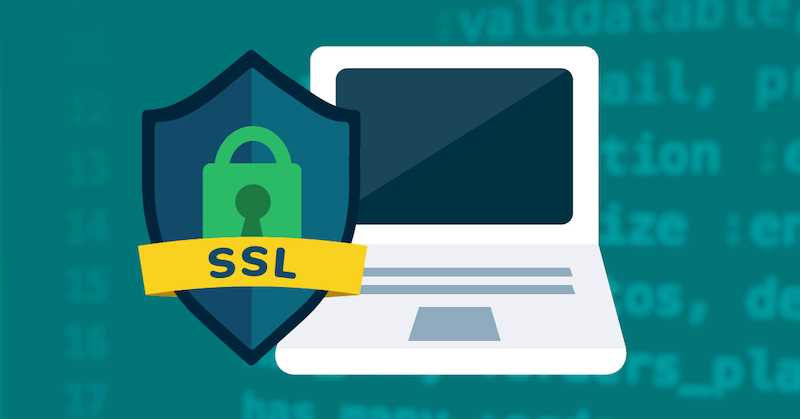In an era where digital security is paramount, ensuring that your business website is equipped with an SSL (Secure Socket Layer) certificate is no longer optional—it’s a necessity. An SSL certificate not only protects your website and its users but also enhances your brand’s credibility. Here’s why investing in an SSL certificate is essential for your business.

Table of Contents
Toggle1. Enhanced Security
One of the primary functions of an SSL certificate is to secure data transmitted between a user’s browser and your server.
- Data Encryption: SSL certificates encrypt sensitive information, such as personal details, payment information, and login credentials. This encryption ensures that even if the data is intercepted, it remains unreadable to unauthorized parties.
- Protection Against Cyber Threats: Cyber attacks, including man-in-the-middle attacks and data breaches, are on the rise. An SSL certificate provides an added layer of protection against such threats, helping to safeguard your website and its users.
2. Builds Trust and Credibility
In today’s digital landscape, consumers are increasingly concerned about their online security.
- Visual Indicators: Websites with SSL certificates display a padlock icon in the browser’s address bar, along with “https://” at the beginning of the URL. These visual indicators signal to users that your site is secure, fostering trust and encouraging them to interact with your business.
- Trust Badges: Many SSL providers offer trust seals that you can display on your website. These badges serve as an additional reassurance to visitors, showcasing your commitment to their security.
3. Improved SEO Rankings
Search engines prioritize secure websites in their rankings, meaning that having an SSL certificate can positively impact your search engine optimization (SEO) efforts.
- Google’s Preference for HTTPS: Google has confirmed that it favors HTTPS websites over HTTP ones. By switching to HTTPS, you can improve your website’s visibility in search results, driving more organic traffic to your site.
- Lower Bounce Rates: Users are more likely to stay on a secure site. When visitors trust your website’s security, they’re less likely to leave, resulting in lower bounce rates and potentially higher conversions.
4. Compliance with Industry Regulations
Many industries are subject to regulations that require websites to implement security measures to protect user data.
- Data Protection Laws: Regulations such as the General Data Protection Regulation (GDPR) and the Payment Card Industry Data Security Standard (PCI DSS) mandate strict data protection measures. An SSL certificate helps ensure compliance with these regulations, protecting your business from potential fines and legal issues.
- Customer Expectations: Customers expect businesses to take security seriously. Having an SSL certificate demonstrates your commitment to safeguarding their information, which can enhance customer loyalty and satisfaction.
5. Enhanced Online Transactions
If your business conducts online transactions, an SSL certificate is crucial.
- Secure Payment Processing: SSL certificates provide secure connections for online payments, protecting sensitive financial information from being compromised during transactions.
- Customer Confidence: When customers see that your website is secure, they are more likely to complete purchases. This confidence can lead to higher sales and improved customer retention.
6. Protection Against Phishing Attacks
Phishing attacks are a common method used by cybercriminals to steal personal information.
- Reduced Risk of Phishing: An SSL certificate makes it more difficult for attackers to impersonate your website. With SSL, users can verify the authenticity of your site, reducing the likelihood of falling victim to phishing scams.
- Brand Protection: By securing your website with an SSL certificate, you help protect your brand reputation. Users are less likely to associate your business with fraudulent activities if they know you prioritize security.
7. Improved Performance and Speed
While the primary purpose of an SSL certificate is security, it can also improve your website’s performance.
- HTTP/2 Support: Many modern web browsers support HTTP/2, a protocol that offers faster page loading times. SSL certificates are required to use HTTP/2, meaning that switching to HTTPS can enhance the speed and performance of your website.
- Better User Experience: A faster website leads to a better user experience, encouraging visitors to spend more time on your site and explore your offerings.
Conclusion
In today’s digital environment, having an SSL certificate for your business website is essential for protecting user data, building trust, and enhancing your online presence. The benefits of an SSL certificate extend beyond security; it improves your SEO rankings, ensures compliance with regulations, and enhances customer confidence in your brand. If you haven’t already, consider investing in an SSL certificate to safeguard your business and its users, ensuring a secure and trustworthy online experience. With the right security measures in place, you can focus on growing your business while providing your customers with peace of mind.


No responses yet